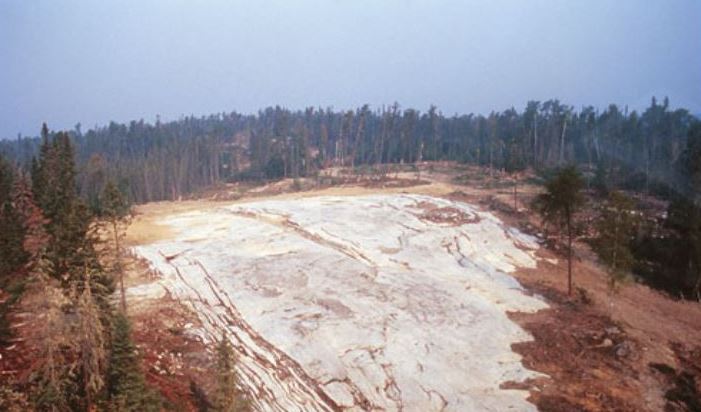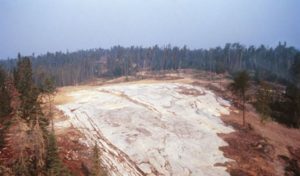Avalon sees lithium opportunity at Separation Rapids Project

Avalon's Separation Rapids lithium deposit in northwestern Ontario. Source: Avalon Advanced Materials Inc.
Avalon Advanced Minerals Inc. [AVL-TSX, OTC-AVLNF] said Friday it has completed the diamond drilling program on its Separation Rapids Lithium Project near Kenora, northwestern Ontario.

As planned, six holes totalling 1,500 metres were completed in just under one month. The program ran very smoothly without technical issues, the company said in a press release.
The objective of the drill program was to expand lithium resources of both the lepidolite and petalite-rich mineralization and better define near surface resource geometry for mine planning purposes.
Results from the visual observations confirm continuity of lithium mineralization to depth with increased thicknesses of lepidolite-rich lithium mineralization on the east end of the deposit.
Assay results are expected in four to six weeks.
Avalon Advanced Materials is a Canadian mineral development company specializing in niche market metals and minerals with growing demand in new technology. The company has three advanced stage projects, all 100% owned, providing investors with exposure to lithium, tin, and indium as well as rare earth elements, tantalum, niobium and zirconium
The company is currently focused on its Separation Rapids Lithium Project and its East Kemptville Tin-Indium project in Yarmouth, Nova Scotia.
The company said Separation Rapids has the potential to produce high purity lithium compounds for two distinct markets:
An industrial mineral product for glass ceramics and lithium chemicals for energy storage.
It also has the potential for several by-products, including feldspars, silica, rubidium, cesium, and tantalum
The Separation Rapids deposit is one of the largest “complex-type” lithium-cesium-tantalum pegmatite deposits in the world. It is unusual in its enrichment in the rare, high purity lithium mineral petalite.
Petalite is the preferred mineral feedstock for certain glass-ceramic products for technical reasons, notably its low impurity levels.
Avalon said the petalite found at the Separation Rapids deposit also offers potential to provide a high purity lithium chemical product at a relatively low cost to serve the needs of the lithium ion re-chargeable battery manufacturers.
A positive preliminary economic assessment (PEA)completed in September 2016, confirmed a technically viable process and positive economics for the recovery of a battery-grade lithium hydroxide product from Separation Rapids petalite.
Since it acquired the property in 1996, Avalon has spent approximately $10 million on exploration and development work. The PEA envisioned an open pit mine, potentially transitioning to underground mining in later years.
It assumed average annual production of 14,600 tonnes of lithium hydroxide for a minimum of 10 years and 100,000 tonnes per year of feldspar mineral concentrate.
Total capital expenditures were estimated at $514 million, the company said. The average cost to produce lithium hydroxide was estimated at US$4,900 per tonne, versus a price assumption of US $11,000 per tonne.
Pricing for lithium hydroxide has moved significantly higher over the past year and was recently reported at US $18,000 per tonne.
An updated PEA financial model will be prepared once the current work program is completed, the company said.
The Petalite and Lepidolite zones are estimated to contain 8.12 million tonnes in the measured and indicated category of 1.37% Li20, and 0.360% Rb20.
Avalon shares rose 3.7% or $0.005 to 14 cents on Friday. The 52-week range is 19 cents and 11 cents.
